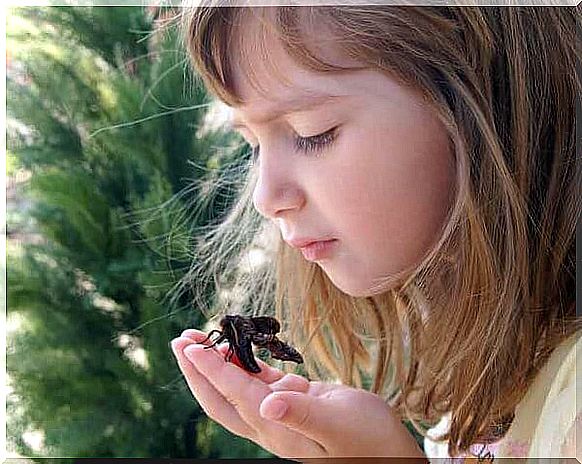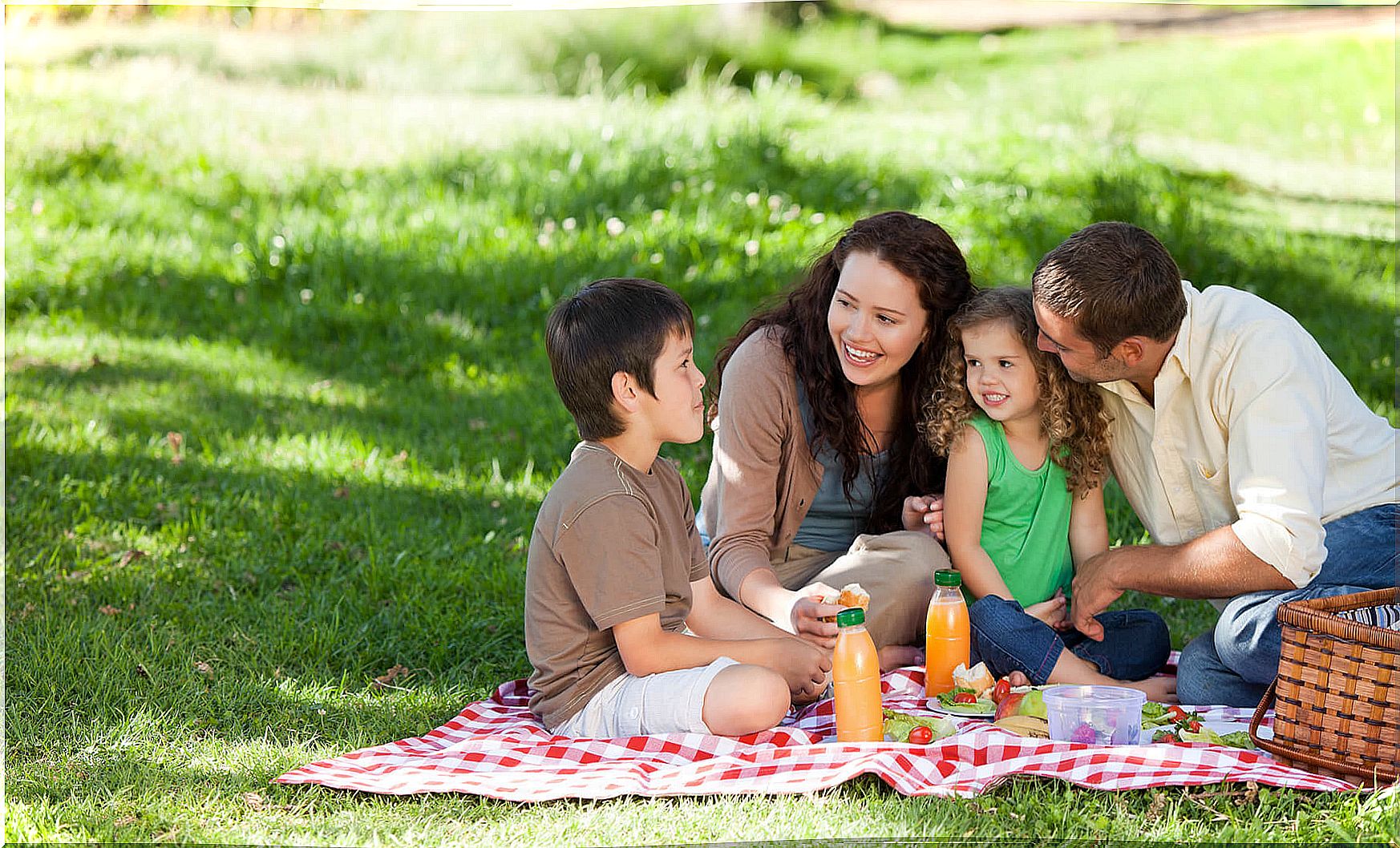How To Educate Children Who Love Nature

Not every child can be a nature lover just for fun, sometimes a minimum of contact with it is required to achieve it. In general, those little ones who grow up close to animals, who share moments in the countryside or live in rural areas are the ones who are most passionate about this topic.
Although we somehow let them choose if they want to follow this path, sometimes it depends on the influence of a family member. Perhaps one or both of your parents are nature lovers. The truth is that this important contact has its own challenges. Although it is fun and exciting, there are certain rules to follow.
If we are going to raise our children with attachment to natural treasures, it is necessary to make several recommendations. To begin, it is necessary to tell them about their personal care, because nature is not always harmless. It is very important to make them aware of the potential dangers of being abroad. In the same way, we need to educate them about caring for their own environment.
Recommendations for educating children who love nature
It is not just that they play outside, it is necessary to take care of them from possible risks. Being in nature, children can be in contact with bacteria, fungi or dangerous animals. Although this type of contact is sometimes recommended to improve your immune system, excesses are negative.

If your child is a nature lover, it is convenient to take into account the following recommendations.
- Talk to your little ones about the dangers in the environment. Advise them not to touch any animals they find, and tell them about poisonous plants. Insects, polluted waters and the use of chemicals on vegetation are also latent risks.
- Before going outside, it is important to protect them with insect repellants. The use of sunscreen is also essential even in winter.
- Remember to put on suitable clothing. It is convenient to be warm and protected from moisture when necessary. It is also advisable that the footwear is resistant to the surface and does not allow moisture to pass through. Although sometimes they need to be fresh, we must also take care of insect bites.
- It is very important that your diet is adequate to raise your defenses. In addition, the corresponding hydration is highly recommended.
- It is a good idea to have a first aid kit on hand when we take them to the field. In the same way, immediate action is pertinent in case of adverse reactions related to poisoning or stings.
Benefits of contact with nature
Some studies indicate that despite the risks of being in the field, the benefits are greater. Therefore, specialists encourage our children not to limit their contact with nature. According to research, the benefits can be physical and psychological.
“Increasing evidence demonstrates the benefits of nature for children’s psychology and physical well-being, including reduced stress, greater physical health, greater creativity, and better concentration.”
-American Association of Psychologists-
Psychologists assure that the supposed risks do not outweigh the benefits. Therefore, we should not prevent our children from enjoying a fun walk in the park, camping from time to time or simply going out to play in the garden. They comment that even when we live in the city, somehow we expose ourselves to the same risks that exist in nature.
As we know, some limits exist. For example, we recommend staying away from polluted waters or areas of wild animals. Choosing the right space and letting them get dirty for a while could enhance their creativity, promote their ecological awareness, and help their immune system, according to experts.
Activities to do in nature

Without having to be expert campers, we can initiate our children in the care and appreciation of natural spaces. In the main cities you can find spaces to enjoy nature. Also in our own homes there is sometimes the ideal place. Some recommendations are as follows.
- Plan a picnic on the weekend. Sitting down to eat in the park is a simple activity that allows us to relax for a while and does not require a lot of time and effort
- Teach him to care. Through specific games, we can encourage them to collect leaves or clean small natural areas where waste is found. Caring for a plant or a pet also brings them benefits
- Have a soccer game in the park. Sport in nature is very beneficial, in addition it unites us as a family and creates magical memories
- Camping is not for everyone, but it can be tried. We may not have to sleep outside, but spending the day fishing, pitching a tent, or building a fire can be a lot of fun.









